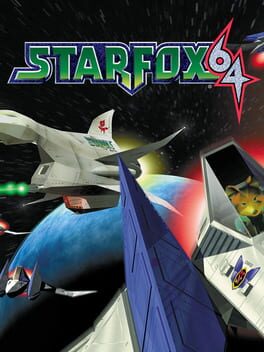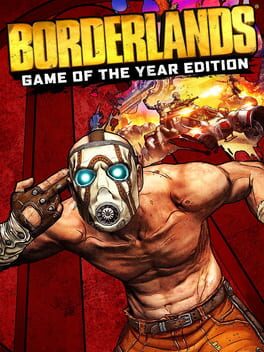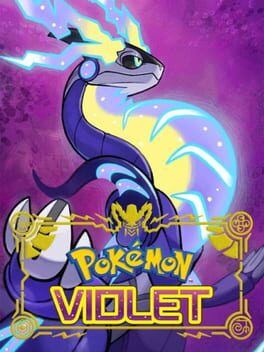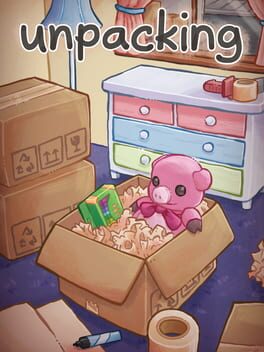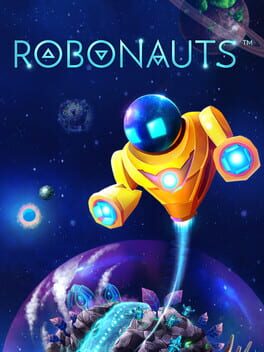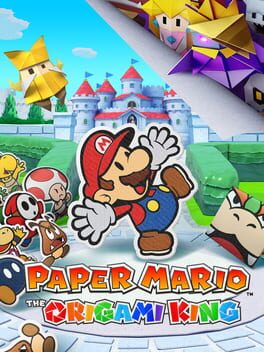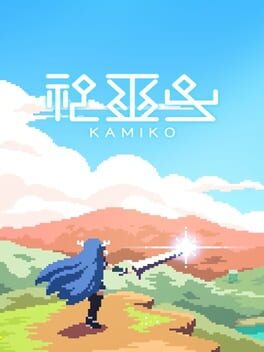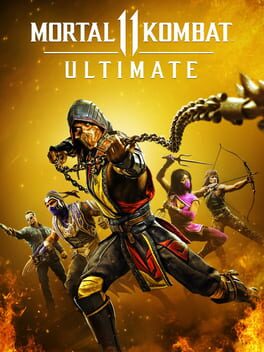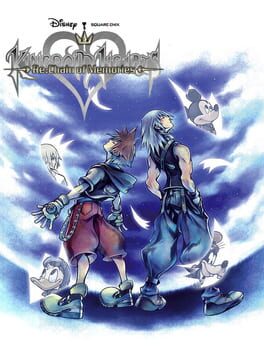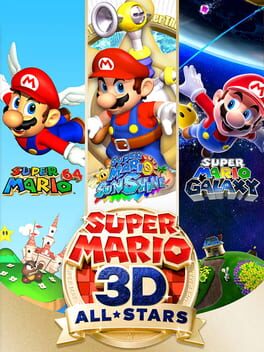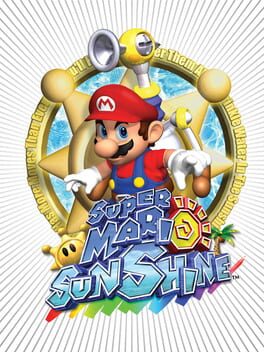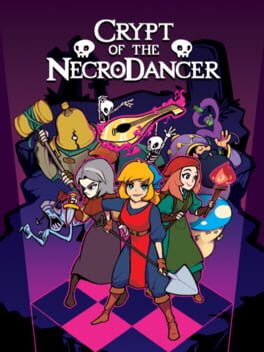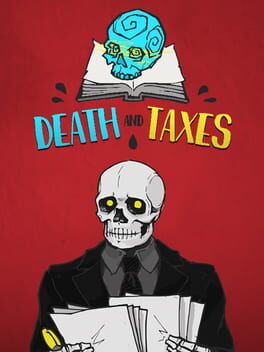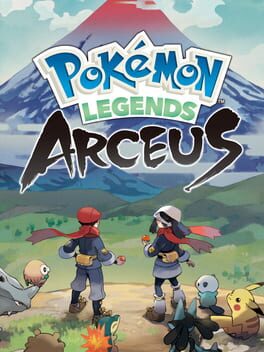PhilthePill
BACKER
1997
2018
"I'll just complete this last mission."
When this game clicked for me, I was hooked. Alternating between skags, bandits, and the subsequent variety of enemies was very satisfying. There probably could be more done to the difficulty balance to make it harder to be killed, but more punishing when it does happen. Still, the game brings surprising difficulty ramp-ups that were welcome in its final third with the introduction of armored enemies. A great time.
When this game clicked for me, I was hooked. Alternating between skags, bandits, and the subsequent variety of enemies was very satisfying. There probably could be more done to the difficulty balance to make it harder to be killed, but more punishing when it does happen. Still, the game brings surprising difficulty ramp-ups that were welcome in its final third with the introduction of armored enemies. A great time.
2022
I'm not a graphics guy. I roll my eyes at the gamers who care about framerate. I stay in my Nintendo lane and do not care to know what an Unreal Engine is. Which is why the whole "they didn't even create new Pokemon models for Sword & Shield" talking point didn't bother me.
But this game initially tested me. The fact that the performance issues was resulting in lag and delayed interface response was admittedly a core flaw.
Just a few hours into it, I went back to not caring. What I cared about was exploring new areas with my Miraidon and sending out my stronger Pokemon in the Let's Go style while keeping my eyes peeled for literally hundreds that I had yet to catch.
I don't think we're going back to linear Pokemon anytime soon. Now to just cross my fingers and hope next time we get some level scaling with the gyms.
But this game initially tested me. The fact that the performance issues was resulting in lag and delayed interface response was admittedly a core flaw.
Just a few hours into it, I went back to not caring. What I cared about was exploring new areas with my Miraidon and sending out my stronger Pokemon in the Let's Go style while keeping my eyes peeled for literally hundreds that I had yet to catch.
I don't think we're going back to linear Pokemon anytime soon. Now to just cross my fingers and hope next time we get some level scaling with the gyms.
2021
2017
In some ways, The Origami King was the most compelling and beautiful adventure I've had on the Switch. Only Breath of the Wild rivals the adventure story, but that game is much more impressionistic than the well-crafted, but on-rails plot of TOK. RPG diehards will roll their eyes at my praise for the plot, given that it's made to still be processed by younger players, without layered, episodic moments of characterization. The characters are written to be understood immediately from their dialogue, with subplots that suddenly come and go for the sake of an emotional beat. But, honestly, for someone who only has so many hours to sink into a game, it was fun and freeing to not have to worry about whether or not I'd fought enough mooks in a certain part of the map in order to level up my relationships or trigger a sidequest cutscene.
At least one thing the reviews tend to harp on is true. The beginning of the game is comparatively slow and hand-holdy. It isn't until we get to Overlook Tower where we see hints that each level is going to be more complex than we're initially set up to think. The slider puzzle gameplay is essentially a way to set things up so you can one-shot your enemies. It's fun to master, but ultimately it's fine if you don't get great lineups or if you use Toads to cheer. Enemies are to be treated like Mario enemies. If you can stomp on 'em for the coins, great. If you miss hitting them, it's rarely worth going back to destroy them. (Unless you want the Battle King trophy).
Intelligent Systems is obviously very aware of the criticisms against Sticker Star and Color Splash, some of which are outside their control. They have responded with Origami King, which leans into latter-Paper Mario tropes. Franchise fans needs to understand that this isn't a traditional RPG series anymore, and to have gotten two solid, base-RPGs featuring these versions of the characters is enough of a gift already. PM is an adventure series with RPG elements and in that regard, TOK is an absolute towering example.
At least one thing the reviews tend to harp on is true. The beginning of the game is comparatively slow and hand-holdy. It isn't until we get to Overlook Tower where we see hints that each level is going to be more complex than we're initially set up to think. The slider puzzle gameplay is essentially a way to set things up so you can one-shot your enemies. It's fun to master, but ultimately it's fine if you don't get great lineups or if you use Toads to cheer. Enemies are to be treated like Mario enemies. If you can stomp on 'em for the coins, great. If you miss hitting them, it's rarely worth going back to destroy them. (Unless you want the Battle King trophy).
Intelligent Systems is obviously very aware of the criticisms against Sticker Star and Color Splash, some of which are outside their control. They have responded with Origami King, which leans into latter-Paper Mario tropes. Franchise fans needs to understand that this isn't a traditional RPG series anymore, and to have gotten two solid, base-RPGs featuring these versions of the characters is enough of a gift already. PM is an adventure series with RPG elements and in that regard, TOK is an absolute towering example.
2017
“I wasn’t allowed to play the early installments of this franchise.” That’s the first thing that comes to my head when I reflect on the world of Mortal Kombat. But the fact of the matter is that I wasn’t banned from playing the games, because I never asked. I didn’t want to be the edgy kid who played “Mature” games that I couldn’t buy myself. It was hard enough to justify the expense to play Mario and Pikmin on our Nintendo Gamecube. It was my younger brother who would push the boundaries and look into games that were beyond our “maturity level.”
The release of the 2021 Mortal Kombat film unleashed a new short-term interest in the entire legacy of Mortal Kombat. It led me to downloading this game for my Switch. And I guess I was expecting it to be a rehash of the movie plots, which never take you past Mortal Kombat 3. I was blown away by the fact that there is a generation of MK fighters after Sonya Blade and Jax Briggs. And in the first few chapters of the Mortal Kombat 11 story mode, they make clear that there were consequences to the previous games and that there are consequences for people in this one.
In short, I’ve really liked it.
On a platform level this isn't 4.5 stars. I don't really give two rat bottoms regarding latest-gen graphical achievements, but what the Switch is doing with the hair textures here is distracting. The load times are bearable, but there's this weird churn when selecting your default character skins in the Fight mode. That said, the fact that this is possible on the Switch at all is kind of impressive. Regardless, I can't fault the core game for the platform's limitations and I really like the quality of the cutscene animations, so it is nearly a "perfect game" when you idealize its hardware.
Regarding all the metadiscourse on this game - the economy, the microtransactions; they don't really affect me since I have minimal interest in unlocking all the skins and customizing my characters for online play. I have zero competitive interest in this game as an esport, so connectivity and character balancing aren't issues for me either. The core experience for me were the two campaign modes in MK11 and Aftermath and those were what really impressed me.
This is a pretty pivotal game for me as it has taught me at an adult age that I might really actually enjoy the fighting game genre. Admittedly, as a Nintendo consumer, my main exposure to the game category was Smash and I've grown....disillusioned with it. Exploring the world of Mortal Kombat has kind of invigoriated me for games like Dragonball Fighterz and the like.
We'll see if I dabble in the Krypt next.
The release of the 2021 Mortal Kombat film unleashed a new short-term interest in the entire legacy of Mortal Kombat. It led me to downloading this game for my Switch. And I guess I was expecting it to be a rehash of the movie plots, which never take you past Mortal Kombat 3. I was blown away by the fact that there is a generation of MK fighters after Sonya Blade and Jax Briggs. And in the first few chapters of the Mortal Kombat 11 story mode, they make clear that there were consequences to the previous games and that there are consequences for people in this one.
In short, I’ve really liked it.
On a platform level this isn't 4.5 stars. I don't really give two rat bottoms regarding latest-gen graphical achievements, but what the Switch is doing with the hair textures here is distracting. The load times are bearable, but there's this weird churn when selecting your default character skins in the Fight mode. That said, the fact that this is possible on the Switch at all is kind of impressive. Regardless, I can't fault the core game for the platform's limitations and I really like the quality of the cutscene animations, so it is nearly a "perfect game" when you idealize its hardware.
Regarding all the metadiscourse on this game - the economy, the microtransactions; they don't really affect me since I have minimal interest in unlocking all the skins and customizing my characters for online play. I have zero competitive interest in this game as an esport, so connectivity and character balancing aren't issues for me either. The core experience for me were the two campaign modes in MK11 and Aftermath and those were what really impressed me.
This is a pretty pivotal game for me as it has taught me at an adult age that I might really actually enjoy the fighting game genre. Admittedly, as a Nintendo consumer, my main exposure to the game category was Smash and I've grown....disillusioned with it. Exploring the world of Mortal Kombat has kind of invigoriated me for games like Dragonball Fighterz and the like.
We'll see if I dabble in the Krypt next.
Despite owning a Game Boy Advance in my youth and being a big enough fan of Kingdom Hearts to play games like 358/2 Days and Birth By Sleep, Chain of Memories always eluded me. In time, I filled myself in on the general strokes of the lore. Why not just play the game? Well, the card battling gimmick didn't exactly repulse me, but it did make the game seem particularly spin-offy.
All that to say that this was my first exposure to the gameplay of CoM. It started off rocky. It got downright frustrating. It landed somewhere between compelling and life-draining. But just as Final Mix managed to quicksand me back into the KH fandom, CoM is sticking with me and making me want to do another playthrough as Sora to see if I can optimize the game for myself.
The big-profile KH reviewers like KingK frequently point out that Sonic Blade, among other sleights, "break" the game and reduce the boss fights to spam fest. Luckily, even though I'd been told this halfway through my playthrough, I simply chose not to do that. The result was multiple deaths at the hands of Repliku, Larxene, Axel, and Vexen (strangely enough, Marluxia never managed to kill me with my proper Boss Deck) - but I could feel myself getting better with magic, zero cards, and partner sleights. I allowed myself the option to explore the rest of what the game had to offer and that made all the difference.
Where I did wish the developers had done something specifically for Re:COM was address the monotony of the map traversal. Once you're at a high enough level and have a deck built, the incentive to pick fights on the thirteenth floor vanishes like a Namine memory. I can't speak for what this was like in a GBA-era handheld, but for an at-home experience, it started to feel rather punishing. Not because fighting Heartless was hard, but because no matter how good you got, the card system meant that the fights lasted longer than, say, grind sessions in Hollow Bastion in Final Mix. There are mechanics in the game that seem quirky rather than integrated. Simply adding more variety to what the door cards actually do in regards to your final confrontations would have gone a long way.
It's a game I would have quit if it weren't for my investment in the characters. It's hard to say how much of this is the meta text or simply the knowledge of future events. But I was surprised by how moved I was by Namine's story and her interactions with the characters. It was a character I'd only known about, but it's truly something else to experience the journey, making later moments in the Kingdom Hearts story carry a lot more significance.
All that to say that this was my first exposure to the gameplay of CoM. It started off rocky. It got downright frustrating. It landed somewhere between compelling and life-draining. But just as Final Mix managed to quicksand me back into the KH fandom, CoM is sticking with me and making me want to do another playthrough as Sora to see if I can optimize the game for myself.
The big-profile KH reviewers like KingK frequently point out that Sonic Blade, among other sleights, "break" the game and reduce the boss fights to spam fest. Luckily, even though I'd been told this halfway through my playthrough, I simply chose not to do that. The result was multiple deaths at the hands of Repliku, Larxene, Axel, and Vexen (strangely enough, Marluxia never managed to kill me with my proper Boss Deck) - but I could feel myself getting better with magic, zero cards, and partner sleights. I allowed myself the option to explore the rest of what the game had to offer and that made all the difference.
Where I did wish the developers had done something specifically for Re:COM was address the monotony of the map traversal. Once you're at a high enough level and have a deck built, the incentive to pick fights on the thirteenth floor vanishes like a Namine memory. I can't speak for what this was like in a GBA-era handheld, but for an at-home experience, it started to feel rather punishing. Not because fighting Heartless was hard, but because no matter how good you got, the card system meant that the fights lasted longer than, say, grind sessions in Hollow Bastion in Final Mix. There are mechanics in the game that seem quirky rather than integrated. Simply adding more variety to what the door cards actually do in regards to your final confrontations would have gone a long way.
It's a game I would have quit if it weren't for my investment in the characters. It's hard to say how much of this is the meta text or simply the knowledge of future events. But I was surprised by how moved I was by Namine's story and her interactions with the characters. It was a character I'd only known about, but it's truly something else to experience the journey, making later moments in the Kingdom Hearts story carry a lot more significance.
Not a final review - Ongoing impressions
Controls for Mario in SM64 are pretty smooth. You find yourself wishing you had a full-360 control of the camera, but the right stick is an improvement over the C buttons.
Currently at 96 stars, trying to go for 120 before Ultimate Bowser. It's been a huge pleasure to revisit this game.
On Sunshine, the emulation is making everything look really good except for the cutscenes - certain voice lines, particularly from the Piantas, sound extremely muffled. And then the cropping and brightness settings they're using really make the cutscenes incongruous with the gameplay.
I'm one of those who ranks Sunshine third among these three games and I'm still struggling. Mario is so damn slippery when landing on platforms, that it irrationally angers me. The music and gameplay animation makes me happy, though.
Controls for Mario in SM64 are pretty smooth. You find yourself wishing you had a full-360 control of the camera, but the right stick is an improvement over the C buttons.
Currently at 96 stars, trying to go for 120 before Ultimate Bowser. It's been a huge pleasure to revisit this game.
On Sunshine, the emulation is making everything look really good except for the cutscenes - certain voice lines, particularly from the Piantas, sound extremely muffled. And then the cropping and brightness settings they're using really make the cutscenes incongruous with the gameplay.
I'm one of those who ranks Sunshine third among these three games and I'm still struggling. Mario is so damn slippery when landing on platforms, that it irrationally angers me. The music and gameplay animation makes me happy, though.
2002
Very happy I got to play this again on a modern system, as it's a game oozing with charm (and pollution). But Mario is so dang slippery and several of the shines seem designed to cause rage quits. The late-stage for story completion is particularly aggravating, forcing you to complete a certain number of episodes per stage and repeat tasks, culminating in chasing down Shadow Mario seven times. I'm happy to see this game get more attention as an interesting anachronism, but am even happier than the 3D games went in the direction of Galaxy and Odyssey.
2020
Fell into a good groove on my second attempt, barrelling through my choices in order to see what would happen at the end of the 28 days. The background questions Death & Taxes bring up don't get fully explored by the simple plot. The "impact" your choices have on the world are sometimes extremely predictable, but part of the fun is chasing down the butterfly effect of certain choices, including what happens to the green boots.
Arceus takes the half-steps established in Pokemon Go/Let's Go and Pokemon Sword/Shield and actually develops them into a Pokemon game that I'm driven to complete for the first time since Platinum.
A few things - I'm really glad that there are very rare surprise trainer battles in the wild areas. But I do think this could benefit from a little more battling structure, akin to the gyms. You pick up on the pattern of "battle at the gates, battle a mount guardian, battle a warden." I think it would be nice to challenge some of the people at the Diamond Settlement or the Pearl Settlement.
Otherwise, I'm glad they've cracked the issue of random encounters. I hope Gen IX maintains the ability to view the Pokemon in the overworld, throw Pokeballs from a stealth vantage, and handle evolutions on your own time.
A few things - I'm really glad that there are very rare surprise trainer battles in the wild areas. But I do think this could benefit from a little more battling structure, akin to the gyms. You pick up on the pattern of "battle at the gates, battle a mount guardian, battle a warden." I think it would be nice to challenge some of the people at the Diamond Settlement or the Pearl Settlement.
Otherwise, I'm glad they've cracked the issue of random encounters. I hope Gen IX maintains the ability to view the Pokemon in the overworld, throw Pokeballs from a stealth vantage, and handle evolutions on your own time.
